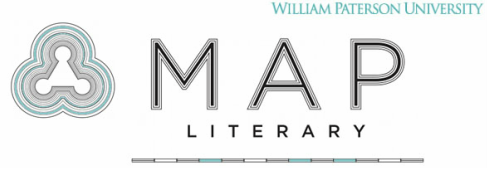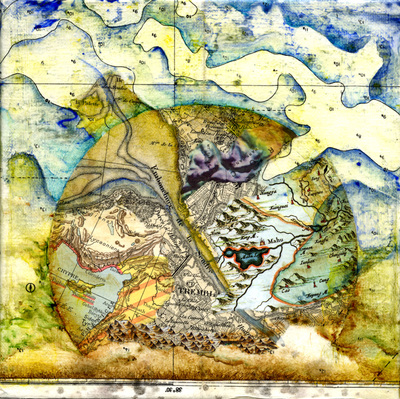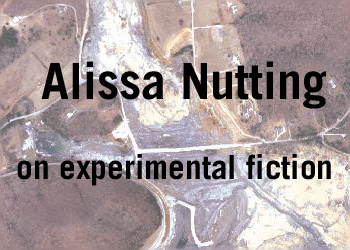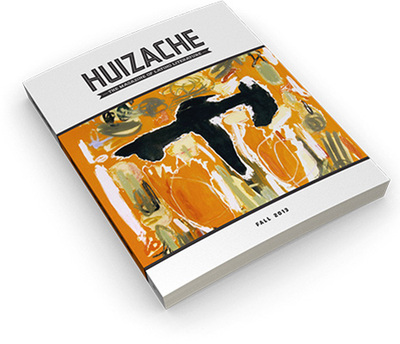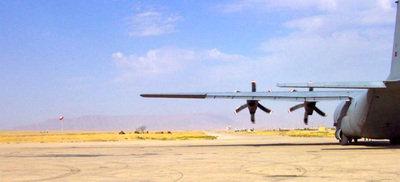MARLENE OLIN
Wanna Ride?
I grew up in Hollywood. Not the Hollywood of movie stars and wayward dreams. The Hollywood in Florida. Our neighborhood was a grid of concrete houses, row after row, box after box. The foliage was bare, the land flat. A single palm tree sat in our yard, waving like a hand. Hello. Goodbye. Hello.
My father was from Queens, my mother Brooklyn. It was my father's job that brought my parents south. While Dad was content, Mother never got used to the transition. How she longed for New York! She was weaned on culture, she'd tell us. Where else are the libraries guarded by lions? And the mansions so big they're museums, the most beautiful museums in the world?
There wasn't much to do in Florida. The heat was everywhere, baking the sidewalks, broiling the cars. Mother's only diversion was shopping, and even that was a chore. Indoor malls were a pipedream back then. Instead we traipsed from store to store—Burdines, Jordan Marsh, Richards—our packages sweaty in our palms, our throats thirsting for Cokes.
Looking back, I realize how odd my childhood was. Mother never entertained herself. Every day I heard boys and girls biking down the sidewalk, playing kickball on the asphalt, jumping rope. But Mother begged me to keep her company. She considered the friends I brought home intruders, strangers with dirt on their shoes and filth in their mouths. I never saw her socialize or talk to the other mothers. In truth, I was her only companion.
One year we made gardening our passion. Plants grew in the tropics year-round. You'd spit out a watermelon seed and in no time flat a vine with plump round melons would be straddling your porch. The plan was to plant a hedge of hibiscus up and down our back fence.
Every day we diligently hosed it. But after months and months of watching and waiting, of yanking weeds, of spraying for black mold and white aphids and every other infestation, only a single bloom poked through. The bud was fuchsia, my favorite color. We had aluminum folding chairs, the strappy kind you take to the beach, and I remember sitting and watching that bloom for hours. I loved the way it bobbed in the breeze, up down, up down, its long neck strutting like a flamingo. Pink.
Sometimes Dad sat with me and watched, too. Meanwhile Mother put up dinner and hissed.
"One lousy flower. I've got mildew creeping on my ceiling, a tangle of kudzu strangling my mailbox, and a patch of clover choking my lawn. And all we get is one lousy flower."
Dad was the light of our lives. He was the peppy one, the one who piled us in the car for expeditions, who considered every tacky tourist spot a grand adventure. We saw alligator wrestling, horses diving off platforms, sequined mermaids swimming in a lake.
I'd wait for the sound of his Buick pealing into the driveway, the gravel crunching, the tires straining. He'd come home from work and throw off his jacket. Then he'd reach into the cold fridge for a beer. His underarms were stained with sweat. The smell of nicotine hovered.
I guess some people's hearts are too big to be contained. When I was in tenth grade, Dad's just gave out. I heard the car turn into the driveway but the rest didn't follow. There was no door slam. No where's my favorite girls? We found him sitting in the car with the keys still in the ignition, his head lolling on his neck like he was sleeping.
I don't know how I managed to graduate. After the funeral, Mother went into her bedroom and didn't reappear for months. Dad left us enough money to get by. But suddenly my childhood was behind me. I cooked and cleaned while Mother rested. She needed to rest, it seemed, all the time.
It's been what? Nearly fifty years? He left us damaged, I suppose. Like a run in a pair of stockings, our sadness just kept going and going. Unfixable. Unstoppable. Rent.
It was my New York relatives who came to the rescue.
"What's a matta wid you? A straight A student! Dat's a big deal!"
Aunts and uncles I never met sent me a plane ticket. And for once in my life, I thought of me and only me. Was I worried about Mother? Of course. But left to her own devices, I knew she'd thrive. She was as tough and stubborn as our backyard weeds. A week after I received my diploma, I found myself in Brooklyn.
That month still shines. Relatives took turns passing me from one family to the next. I marveled at how different yet similar each house was. The smell of food simmering. The thrum of children playing and people prattling. Unlike my Mother's house, there was noise and tumult everywhere. I had nearly a dozen cousins to hang out with. Since it was summer, my presence was as good a diversion as any.
And the 60's were not like other times. The globe was cracking in half and giving birth to a new era. The Beatles and bell-bottoms. Lava lamps and Twiggy. The protests in Selma. The havoc of Hanoi. My life morphed from black and white to Technicolor.
Rebellion was our food and drink, the air we breathed, the clothes we wore. Those of us who were timid grew tendrils of courage, sampling tastes and textures, reveling in our bodies, longing to be loved. I remember walls covered with psychedelic posters, joints passed from hand to hand, the stereo blasting, shag carpeting as thick as Mother's lawn. For a child who spoke in whispers, who viewed every stranger with suspicion, I opened like a flower. I let my hair loose and tossed aside my shoes. We wore long flowing skirts. We danced all night and threw away our bras.
The weeks flew by like a fever dream. To this day I'm not quite sure what was fiction and what was fact. But I do remember this, the one image I've turned upside down and sideways. As a parting gesture, my oldest cousin—his name was Freddy—took me to the city to see a show.
The excitement started on our subway ride. The thrust of the train, the lights flickering on and off, our faces in and out of shadows. It was a Saturday night and as we raced to make an eight o'clock show, the air throbbed with anticipation.
Sitting behind us on the train was a couple—I still remember the girl clearly—olive skin, hoop earrings, some sort of mini-skirt. They were kissing. More than kissing. She was straddling his lap while his hands were under her blouse, their bodies swaying with the train's rhythm, their mouths searching, her legs wrapped around his.
Everybody was watching and pretending not to. Old women with their groceries. A little boy holding his mother's hand. And even though Freddy was older—he had just finished a tour in Viet Nam—I think he was more embarrassed than I was.
When the doors opened, we climbed up the stairs and came face to face with the magic of Times Square. Theater marquees. Vendors hawking hot dogs. Sidewalks splayed with jewelry. The crowd was so thick my cousin grabbed my hand. We were seeing the hottest show in town—my aunt and uncle had sprung for the tickets—and Freddy didn't want to miss a thing.
We had memorized the soundtrack—who didn't know those songs—but nothing prepared us for the performance. The music captured every theme society was wrestling with. And the cast—with their Afros and hippie beads, their long hair and tie-dyed shirts—seemed just like us but better. More handsome. More beautiful. Our best selves multiplied.
From the moment the first number began, I sat on the edge of my seat. Naturally I was nervous. Who wouldn't be nervous? The anticipation alone made my heart thump. Because seconds before intermission, the scene everyone talked about happened. In the middle of a song—just like that—the actors shed their clothes! No matter how much I had prepared myself, my jaw still dropped. I had never seen a naked man before. And the women! How free and confident they were. And for a brief moment, I imagined myself on that stage, our arms linked, our hips undulating, our voices reaching toward the sun.
When the show ended, my cousin glanced at his watch. It was late and instead of taking multiple trains, he decided to spring for a cab. "Stay here," he said. Then with a soldier's determination, he told me that one way or another he'd find us a taxi.
"I'm gonna stand in traffic," he said. "Over dere," he pointed. "Across the street. Dat corner usually works."
Fifteen minutes later, the crowd outside our theater had thinned. I started getting nervous. Darkness was settling, and odd people—women with fishnet stockings and kabuki makeup, men selling stuff you didn't need and wouldn't want—slinked out of the shadows. Meanwhile my cousin was nowhere in sight.
Eventually the cast members began to make their way out of the building. From a distance, I had imagined that the actors were about my age. But now I realized they were older. A few were met by family members. Some had wives and children.
I ventured to the street and looked once more for Freddy. We didn't have cellphones back then, and if I lost my cousin my options were slim. My best bet would be finding a phone booth.
Perhaps I had forgotten my wallet. For I remember being completely distracted, panicked, as I dug inside my purse for loose change. Then all at once a shadow swallowed me. Inches from my ear a voice said hello. I looked up. And there he was—the star of the show, the actual lead performer—standing right next to me. His smile was radioactive, his eyes electric. Volts of virility charged the air. The words, when he spoke, were a growl.
You by yourself? he said. In the show he had worn a suede vest over his bare chest. Now all I could do was stare. The top buttons on his shirt were undone while wisps of curly hair poked through.
Was I by myself? The answer was yes and no. I was a thousand miles away from home. And my cousin, my chaperone for the evening, was nowhere in sight. I stood paralyzed. And for a few brief seconds, the seconds I've replayed over and over, I allowed myself to see what the actor saw. A young woman in full bloom. Perhaps I was holding a Playbill. My long brown hair fell in ringlets. A pair of too tight blue jeans, a gold necklace, a new silk top.
Then he hugged himself like he was cold. Wanna ride? he asked. Not Need a cab? or Can I drop you where you want to go?
Just simply, Wanna ride?
I remember his stare. While I pretended to be looking for my cousin, I could feel his face, his eyes drinking me like a glass of water. When a breeze blew, he shivered. It's getting cold, he said. Then again. Wanna ride?
A car pulled up as if on cue. Then a driver hopped out and opened the door. He wore a jaunty cap. Some kind of uniform. Then the actor glanced at me one last time, raised an eyebrow, nodded in the car's direction.
I wince at the recollection. Like an idiot, I took two steps back, speechless. Then, in the blink of an eye, the man simply left. Perhaps there was a shoulder shrug or a sigh. It was dark. There was an alley. Who could tell?
But over the years, that scene has replayed with a thousand variations. We chat. We flirt. We pick up my cousin a block away and head for a night on the town. We pick up my cousin and drive him home then head to our hotel. I end up in his bed. I end up dead. I end up pregnant. I fall in love. I grow obsessed. I seem possessed.
And invariably, undoubtedly—I experience the greatest sex of my life.
I watched the car as it vanished into traffic, its brake lights merged with countless others. Then minutes later—by then, time had lost all meaning—my cousin finally appeared.
***
When my vacation was over, I headed back to my Mother's home. Everything was and wasn't the same. For while one part of me longed for adventure, the other always tugged toward safety. Mother took one look at my new wardrobe—the tube tops and mini-skirts, the kaleidoscope of colors—and threw it all in the trash. She had come up with a plan while I was gone, a plan that would insure a steady income for years.
A shaky hand pointed to numbers she had circled in the phone book. She was wearing a housecoat, her hair skewered with pins, her feet tucked into slippers. Still there was no denying that she looked healthy, healthier than I had ever seen her.
"Dental hygiene!" she blurted. "That's the ticket! Why waste four years in college when a perfectly respectable profession could be had in half the time?" Then she snorted a laugh. "Sure you're pretty enough. But look where pretty enough got me? A bun in the oven and a lousy life!"
If life were a game board, I spun like a spinner. Just point me in a direction and that's where I'd land.
Mother was right. After I attended community college, it was easy to find a job. Within six months, the dentist I worked for proposed marriage. Karl was twenty years older and a divorcee. I liked his confidence, his efficiency, the way he lined up the instruments just so.
Of course, you never really know anyone until you've lived under their roof. One by one the secrets unfolded as our marriage progressed. Karl had custody of his children every weekend. Little Luke was ten while Regan was twelve. The problems started small and just got bigger. By that age, the seeds have sprouted. What nature hadn't provided it was too late to restore.
Luke had an eating problem. One day when his parents were arguing, I believe he was six or seven, he choked on a piece of hot dog. It got stuck in his throat like a cork. For a few long seconds, Luke couldn't breathe. I'm told his face turned red, his tongue a ghastly purple. Luckily, Karl knew that rescue maneuver. He flipped the child over, wrapped his arms around his waist and pushed.
But after that day, a switch in that child's brain had flipped. For years, he refused to eat anything that wasn't liquid. Every meal had to be pulverized or pureed. While his friends were eating burgers, he ate jars of infant food. Every time he was handed a fork, a look of terror crossed his face. The memory of that hot dog was relived over and over.
The daughter had issues, too. Perhaps less visible but just as crippling. To the outside world, Regan appeared to be a perfect child. But that ex-wife must have hounded her day and night. If her report card wasn't straight A's, she'd cry for two nights straight. If she gained two pounds, she starved herself.
Only her right index finger was allowed retribution. She gnawed that fingernail to the bone until it bled and festered. That nail was her Treaty of Versailles, her Maginot Line, her Emancipation Proclamation. And she kept that finger babied and bandaged, swathed like a newborn, for all the world to see.
If life were a game board, I rolled like the dice. I was a caring stepmother and a patient wife. It wasn't easy. Besides his job, Karl had his own rituals. He was the cleanest person I ever met. His hands were raw from washing, his knuckles bleeding, his nails furrowed. And no matter how often I vacuumed and dusted, clean was never clean enough.
Don't misunderstand me. Karl was dutiful—even attentive. But a bedroom's a bedroom, not a laboratory brimming with germs. And the moment we'd finished making love, he'd run to the shower and wash it off. The smells, the fluids, everything. Scrubbed away. Cleansed.
The years passed. The children grew. Looking back, I suppose marriage is like the ocean. The way it sweeps you up and carries you away. Sometimes the waves climb the seawalls, the crests surging, the water slapping. Then in the blink of an eye, the bay's knee-high, the water clogged with seaweed and scum. High to low. Low to high. And no matter how many hours you sit and stare, that tide change comes as a surprise. What happens in between is a mystery.
Then all at once it's nearly over. One day you look in the mirror and see an old person, a woman with gray hair and crinkly eyes. By the time I was fifty, Mother was long dead. Luke and Regan had moved on. After a short illness, my husband passed as well.
On a lark, I bought a small house in Wyoming near a ski resort. The plan was to use it for vacations. A few weeks in the winter. Perhaps the summer, too. Then a few weeks turned into months. Before long, I sold the house in Florida and moved to the mountains year-round.
***
Queen Anne's lace. Columbine. Indian Paintbrush. My two acres are swept with wildflowers, a forest of fir trees, a clutch of aspens that shimmer in the breeze. I love the way the Tetons launch straight up. There are no foothills, no eased inclines. Just a row of jagged peaks that punch a hole in the sky.
But for every mountain, there's a valley. After years of working alongside my husband, I struggled to keep busy. I helped at the library. Lent a hand at the animal shelter. But volunteering still left extra hours. To fill the rest of my day, I took up hiking.
You never know what you'll encounter. Moose. Elk. Deer. In Wyoming, fences are built for migration. There's egress over and under. It's easy to find your way through.
My routine is simple. With dawn, I grab a jacket and my walking shoes. Then I dash into my car and stop for coffee. There's a convenience store about a mile from my home. Like most businesses out west, this is a one-size-fits-all operation. Part grocery, part bakery, part hardware store. Outside, picnic tables meander near a stream. Dogs splash in and out. Regulars buy a paper, nosh a bagel, read.
Like eating and breathing, stopping by that store soon became a habit. I scan the headlines and re-connect with the world. And like the wine cooler and magazine racks and tasteful cheese assortments, the man seemed to be a fixture, too. Sitting at a picnic table. Nursing the nub of a cigarette.
It was hard not to notice. He looked like a movie star playing a part. A shock of thick black hair interspersed with sprays of gray. A workman's boots. When the weather was mild, he wore a Key West kind of shirt. Pink flamingos. Squawking parrots. Fish with puckered lips. I figured he was some sort of a loony eccentric. I never knew what kind of crazy shirt he would be wearing and found myself looking forward to the surprise.
Of course, when the temperature dropped, his wardrobe changed. It wasn't long before his shirts turned to flannel, the silly patterns to plaids. But as soon as his shirts conformed to convention, the hats on his head held court. These were not your usual ski caps. Instead they were striped or polka-dotted. He looked like a walking sundae, those pom-poms the cherry on top.
I have to admit that I'm lonely. And when you're lonely, sometimes fact and fiction intertwine. If Karl had the key to my heart, it was time to change the locks. Soon my fantasies became my realities. There was no discerning the difference between the voices in my head and the voices outside. Finally, the stage was mine, the spotlight true and steady.
One day I brushed his shoulder while walking by. Close-up, he was tall and lean. Ropey. The words, when he spoke, were a growl.
You by yourself?
Obviously, there had to be a backstory. Sometimes I imagine him a cowboy. The old-fashioned kind. Bow-legged with calloused hands. A man who tames broncos and lassoes steers. You know the type. Whiskers and whiskey. Wild times and women. The kind of guy who bursts through swinging doors.
Or maybe he's a workman. In Wyoming, men in construction are one-size-fits-all, too. Most of them move here for the lifestyle. A love of nature. A sense of complete and utter independence. My plumber has a degree in literature. My handyman quotes Aristotle while he sands your shelf.
His smile was radioactive, his eyes electric. Volts of virility charged the air.
I have no idea how long he lingers at the convenience store each day. There are lots of businessmen in town, men with private planes and hidden stashes of wealth. Economists. CEO's. Consultants who ski during the day and peck on their laptops at night.
When a breeze blew, he shivered. Hugged himself. Said, It's mighty cold out. Said, Pretty soon there'll be a storm.
Though many men are transients. They stand on the side of the road with a foot pointing out and a thumb pointing up. They travel from one resort town to another, looking for change, for opportunity, for something they lost and can't find.
He smelled like cloves and wintergreen. I wanted to be closer, nearer. I wanted to touch that hat.
I dream about him at night under the covers. Then I wake with my nightgown twisted, my neck hot, my palms sweaty.
We locked eyes. Speechless, I sipped my coffee, watching him watching me.
He's everywhere and nowhere. A set of lights in my rearview mirror. A laugh bubbling in my ear.
The keys were in his hand. He looked at me then back again at the pickup. Outside, his truck was black and shiny. Inside, a pair of dice swung back and forth.
Needless to say, I'm not eighteen any more. My hair is dyed, my lips are greased, my face touched up with paint. And my mother's voice, like all mothers' voices, still plays in my head. Sure I was pleasing in my prime. I have the photos. I see the proof.
But as I walk up these paths, I'm toting fifty years of heartache. And each step forward just pushes another step back. I suppose I'm attractive. My legs are strong, my stomach flat. A mirror's a mirror, right? But while the answers may have changed, the questions stay the same. Am I still pretty enough?
Then he raised an eyebrow and nodded in his truck's direction. The clouds lay low. The wind still. The throng of regulars suddenly vanished while birds seemed to stop mid-flight. He opened the door, started the engine, lowered the window.
And then he said, Wanna ride?
Copyright © April 2020 Marlene Olin
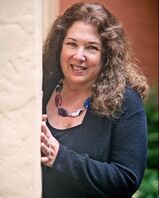
Marlene Olin was born in Brooklyn, raised in Miami, and educated at the University of Michigan. Her short stories have been published or are forthcoming in journals such as The Massachusetts Review, Catapult, The American Literary Review, and Arts and Letters. Her work has been nominated for the Pushcart Prize, Best of The Net, Best Small Fictions, and for inclusion in Best American Short Stories.
